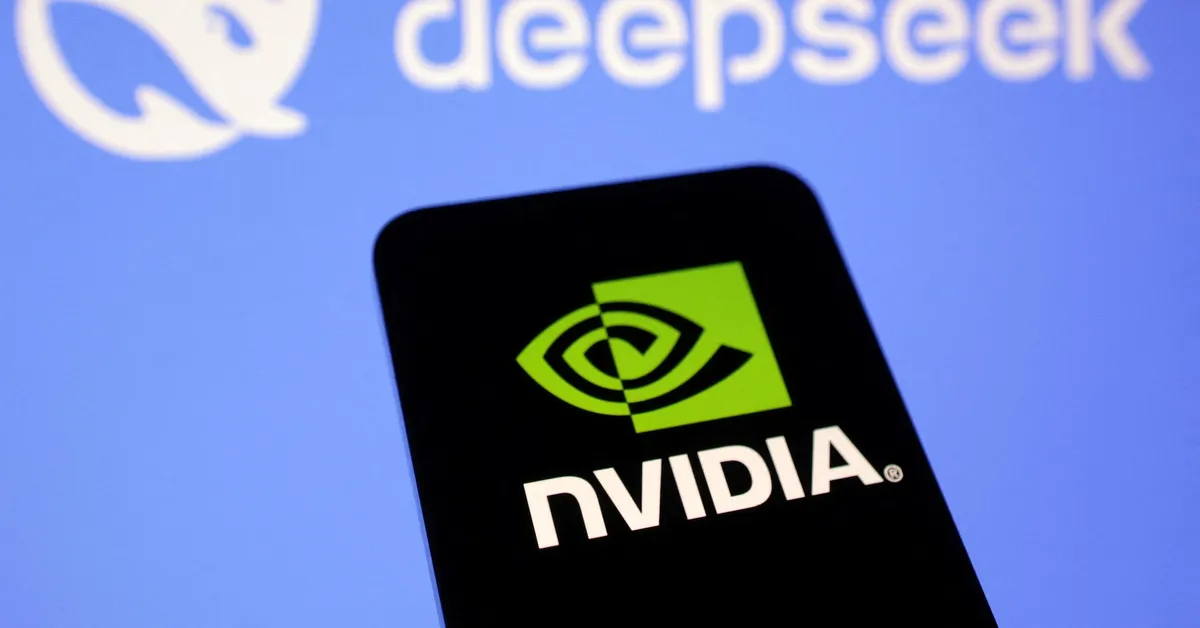
On February 24, Reuters reported that the demand for Nvidia's pricey artificial intelligence chips will be a focal point when the company releases its latest financial results on Wednesday. This comes as investors are increasingly skeptical about the substantial spending on the technology, particularly after the emergence of low-cost AI models from China's DeepSeek shook the industry.
Nvidia, recognized as the world's second most valuable company, has significantly benefited from an AI-driven spending spree by major technology firms over the last two years. However, claims that DeepSeek's AI models can compete with their Western counterparts at a fraction of the cost have led some investors to question whether Nvidia's cutting-edge chips are truly essential for maintaining a competitive advantage in the AI race.
The sudden rise of DeepSeek in January resulted in a staggering loss of $593 billion in market value for Nvidia, marking the largest one-day loss for any U.S. company. Despite this setback, Nvidia's shares were among the best performers in 2023 and 2024.
According to Ivana Delevska, chief investment officer of Spear Invest, which holds Nvidia shares in an actively managed exchange-traded fund, investors are deeply concerned about DeepSeek's impact on demand. Delevska stated, "If Nvidia can demonstrate that they are still able to 'beat and raise,' it would be a positive outcome for the stock."
Nvidia is anticipated to report a 72% increase in revenue, reaching $38.05 billion in its fourth quarter, according to LSEG data. This represents its slowest growth in seven quarters. The company is also expected to forecast a 60% jump in revenue for the first quarter ending in April, in contrast to five consecutive quarters of triple-digit growth until October.
The capital expenditure plans communicated by Meta, Microsoft, Google, and Amazon suggest a very positive near-term demand outlook for Nvidia, according to John Belton, a portfolio manager at Gabelli Funds, which also holds Nvidia shares.
Meanwhile, shipments of Nvidia's powerful Blackwell chips are expected to have accelerated in the fourth quarter, bolstering revenue but squeezing margins due to the costs associated with ramping up a new and complex chip. Analysts project that Nvidia's adjusted gross margin will decrease by more than three percentage points to 73.5% in the fourth quarter.
With the Blackwell series, Nvidia is transitioning from selling individual chips to offering complete AI computing systems, such as the GB200 NVL72, which combines GPUs, CPUs, and networking equipment. This shift has further complicated the costly and time-consuming production ramp-up.
The rollout of Blackwell was also hindered by design flaws and low chip yields, though Nvidia has since resolved these issues. In November, the company announced that Blackwell would exceed initial revenue projections of several billion dollars in the fourth quarter.
John Belton from Gabelli noted that Blackwell has been a challenging product line to launch. Given the significant outperformance that investors have come to expect, Nvidia's delivery might be less impressive this time around due to these dynamics associated with the Blackwell launch.
Sign up for more updates.
Reported by Arsheeya Bajwa in Bengaluru; Edited by Arun Koyyur.